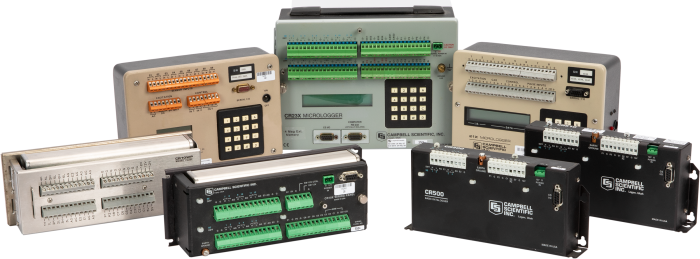Edlog Data Logger Support and You
by Jacob Davis | Updated: 12/05/2018 | Comments: 0

Just like people, data loggers can enter a phase of life called retirement. Our older, Edlog data loggers have been retired for some time now, and we have continued to provide free support for these reliable devices. We include free support when you purchase our data loggers because you—our users—are important to us, and we know you often use our equipment in a natural environment. In a natural environment, sometimes bad things happen to good data loggers. And when you are trying to resolve a problem, it makes the day so much better if you can talk on the phone with an experienced support engineer.
The Retirement Reality
When you realize that some of our data loggers are 30+ years old, it is understandable that a limit must be placed on providing free support. The data loggers last long enough for the original support engineers to retire, and Campbell Scientific is constantly releasing new products. The new support engineers are not able to learn every product we have ever produced. The limit on free phone and email support is approximately 10 years after product production ends. Online support resources remain free—as always.
Reminder: We previously announced that free support for our older, Edlog-based data loggers is ending on January 1, 2019, which is fast approaching. (You can read the Edlog support article that was published in our third-quarter newsletter.)
Your Options for Support
We want to provide the support you need to help you succeed with your applications. As long as we still have employees that remember well how to use our older equipment, you may pay for personalized support. Discuss with a support engineer your needs, and the support engineer will provide you with a quote.
In many cases, you will be better served upgrading to a newer data logger than repurposing an old one. We have made considerable advances in data logger storage space, processing speed, and analog accuracy. As an example, compare our CR10X (released in the mid-1990s) with the CR1000X (released last year):
| CR10X | CR1000X | |
|
Year Released |
1995 |
2017 |
|
Storage (data points) |
62,000 |
36,000,000 |
|
A to D Resolution |
13 bits |
24 bits |
|
CPU Speed |
4.9 MHz |
100 MHz |
|
Differential Channels |
6 |
8 |
|
Excitation Channels |
3 |
4 |
|
Pulse Channels |
2 |
2 |
|
Digital Channels |
8 |
8 |
|
Analog Accuracy |
0.10% |
0.015% |
For situations where you need to replace a retired data logger, here are the suggested replacements that ensure you retain the capability you have come to depend on with your current data logger. A member of our technical sales team can verify any questions of sensor compatibility for you.
| Retired Model | Current Model |
|
CR10X, CR10X-TD, CR10X-PB |
|
|
CR510, CR510-TD, CR510-PB |
|
|
CR23X, CR23X-TD, CR23X-PB |
|
|
CR7 |
There will be some additional self-serve support resources placed online for those of you with retired data loggers. You can look forward to some future blog articles regarding these resources.
Your Stories
If you have an older data logger that is still running well and meets your needs, we would love to hear your stories about Campbell Scientific reliability. Post a comment below to share your story.
















 Jacob Davis is the Director of Client Services and Support at Campbell Scientific, Inc. He works with the worldwide technical support teams. His specialties include serial communications and advanced data logger programming. Jacob has a master’s degree in hydrology and worked with large irrigation projects before coming to Campbell Scientific, Inc.
Jacob Davis is the Director of Client Services and Support at Campbell Scientific, Inc. He works with the worldwide technical support teams. His specialties include serial communications and advanced data logger programming. Jacob has a master’s degree in hydrology and worked with large irrigation projects before coming to Campbell Scientific, Inc.
Comments
Please log in or register to comment.